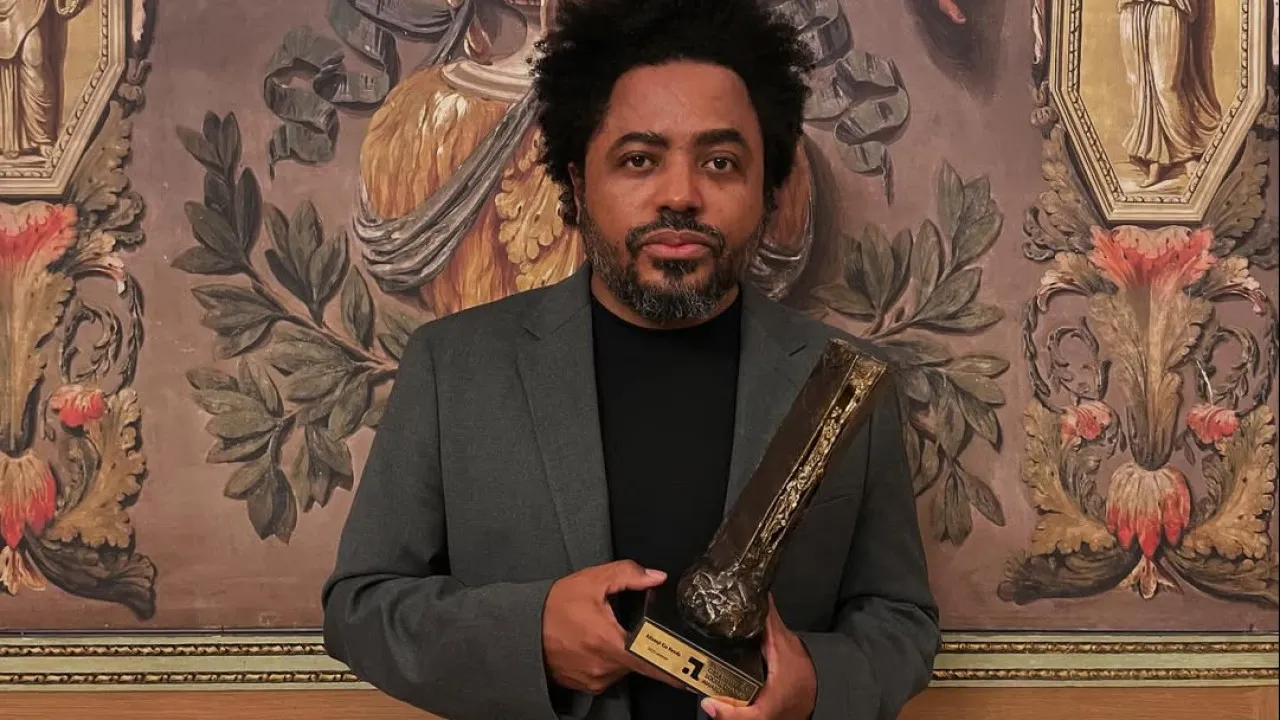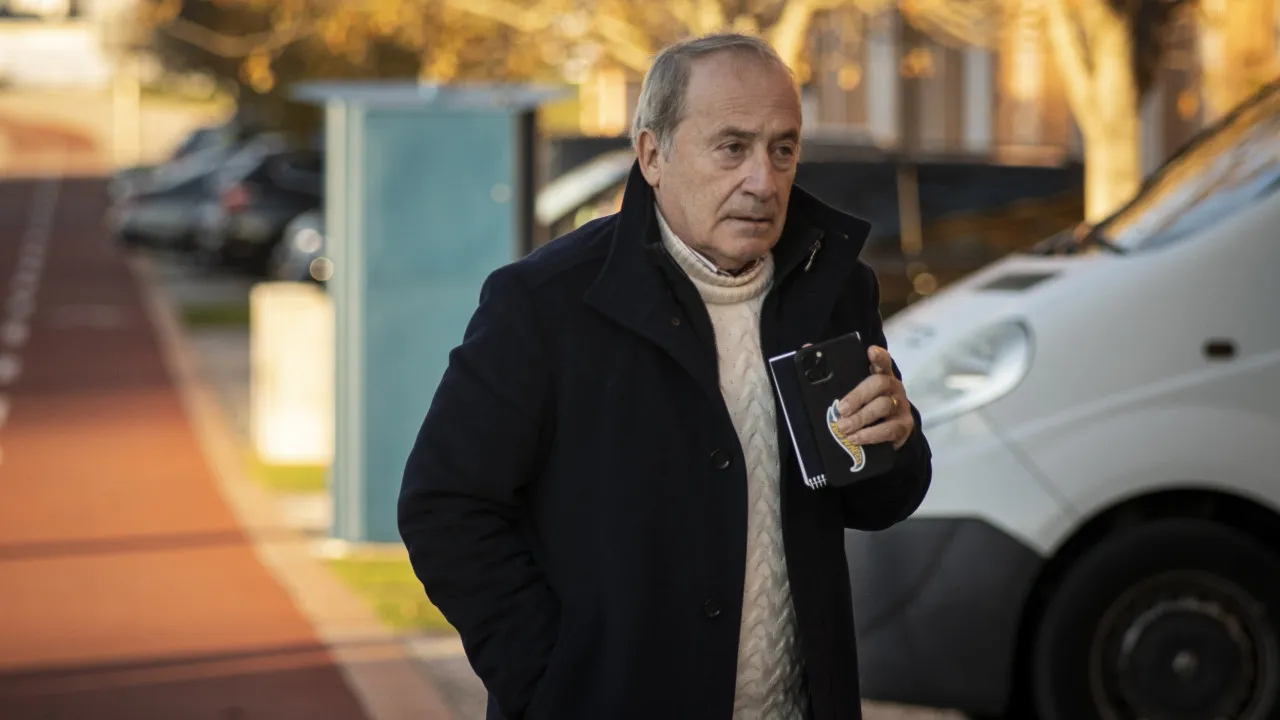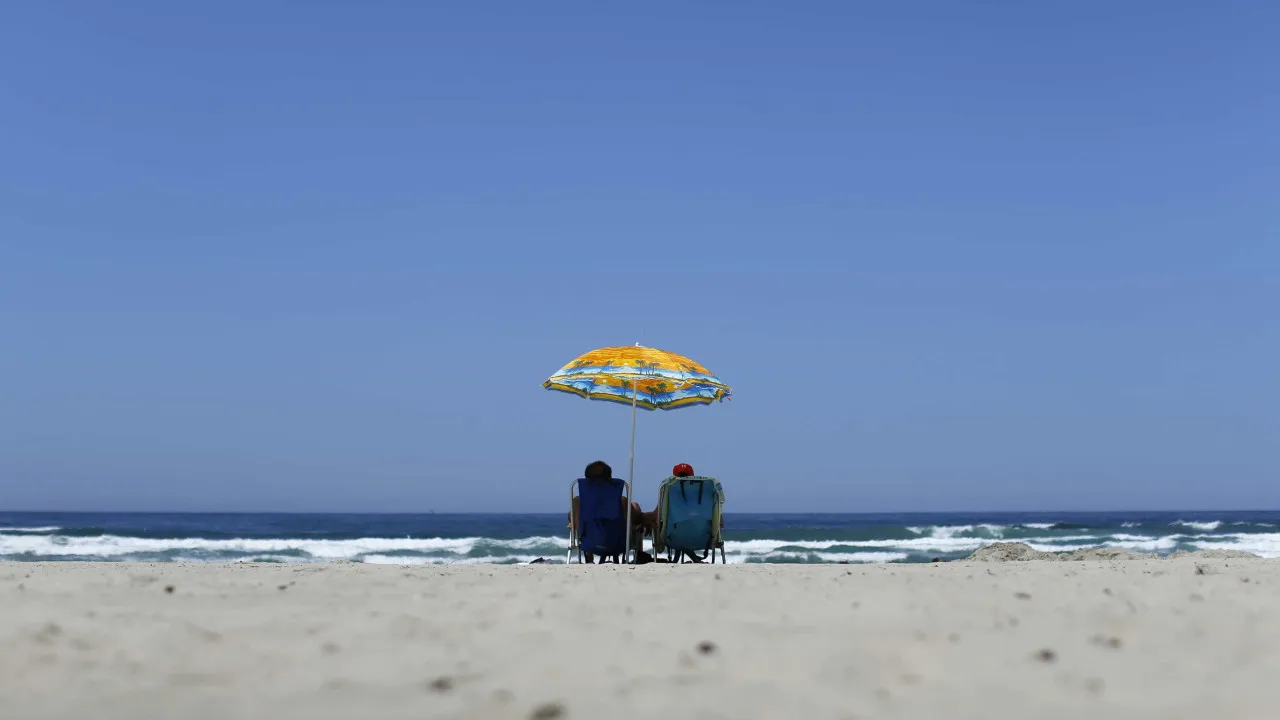
“It is necessary to stop romanticizing what colonization was, and this should not be limited to exhibitions or conferences,” asserts the curator, alongside André Cunha, of the collective exhibition ‘Balumuka! – Poetic Narrative of Liberation…or Poetic Rebellion Kaluanda’, on display at the Centro de Artes de Sines and part of the Festival Músicas do Mundo (FMM) program.
“The decolonization process should not be one-sided, by the Angolans,” emphasizes Kiluanji Kia Henda, noting a lack of openness from the Portuguese side to discuss the subject, as he states.
“Decolonization is not limited to raising flags or composing hymns,” he notes, advocating for “the celebration of memory in public spaces.”
In fact, a Memorial to Honor Enslaved People, authored by Kiluanji Kia Henda, will be erected at Ribeira das Naus in Lisbon for this purpose.
The construction process of the memorial—a project by the Association of Afro-descendants (Djass) approved in the 2017/2018 participatory municipal budget—has been delayed for five years, currently in the phase of artistic and budgetary adjustments, but Kiluanji remains confident it will come to fruition.
The delay, the visual artist observes, is partly due to “a public that does not understand the importance” of the memorial and prefers to ignore that Portugal was responsible for “almost half” of those “trafficked from Africa” and that the Portuguese “were the first to start [slavery] and the last to finish.”
Reflecting on Angola, half a century after independence, Kiluanji Kia Henda sees “a country that still faces many challenges (…) and, unfortunately, has not yet found stability.”
“It’s a country with a very violent history” that needs “more effective changes,” he considers, proud of the current Angolan youth, “who are strong, eager for change, and unwilling to settle for a history” that “also subjugated them to a certain silence.”
This youth gives him “some hope,” and Kiluanji finds a “much more open, much more defiant” language in the artistic community today, which “can lead to a path of change.”
‘Balumuka! — Poetic Narrative of Liberation…or Poetic Rebellion Kaluanda’, gathering works from renowned and emerging artists, is available for visit until October 15. It explores music as a vehicle for preserving history and its importance during the period of colonial liberation, the civil war, and the subsequent peace.
“One can read about society by looking at what musicians produce,” the curator highlights, reminding us that “much has already disappeared” and there is “a major issue with the preservation of memory in Angola.”
Nevertheless, some documentaries provide “a profound overview of certain periods of Angolan history,” thus included in the exhibition covering the chronological period from 1960 to 2025.
Five films are being shown, dating from 1978 to 2018: ‘Carnaval da Vitória’ by António Ole, ‘Mopiópio’ by Zézé Gamboa, ‘É Dreda Ser Angolano’ by Pedro Coquenão + Luaty Beirão, ‘Luanda — A Fábrica da Música’ by Kiluanje Liberdade and Inês Gonçalves, and ‘Para Lá dos Meus Passos’ by Kamy Lara.
The multidisciplinary project gathers artists Cassiano Bamba, Pedro Coquenão and Luaty Beirão, Zezé Gamboa, Kiluanje Liberdade and Inês Gonçalves, Kiluanji Kia Henda, Kamy Lara, Wyssolela Moreira, António Ole, and Gegé M’bakudi and Resem Verkron.
Two series by Kiluanji Kia Henda (‘Versus Carnaval’ and ‘The Sound is the Monument’) are exhibited, along with two commissioned works by Wyssolela Moreira and Resem Verkron & Gegé M’bakudi, in dialogue with the archive of publisher Valentim de Carvalho, and the photo series ‘Luandar,’ unseen images of Kaluanda’s youthful scene by Cassiano Bamba.




